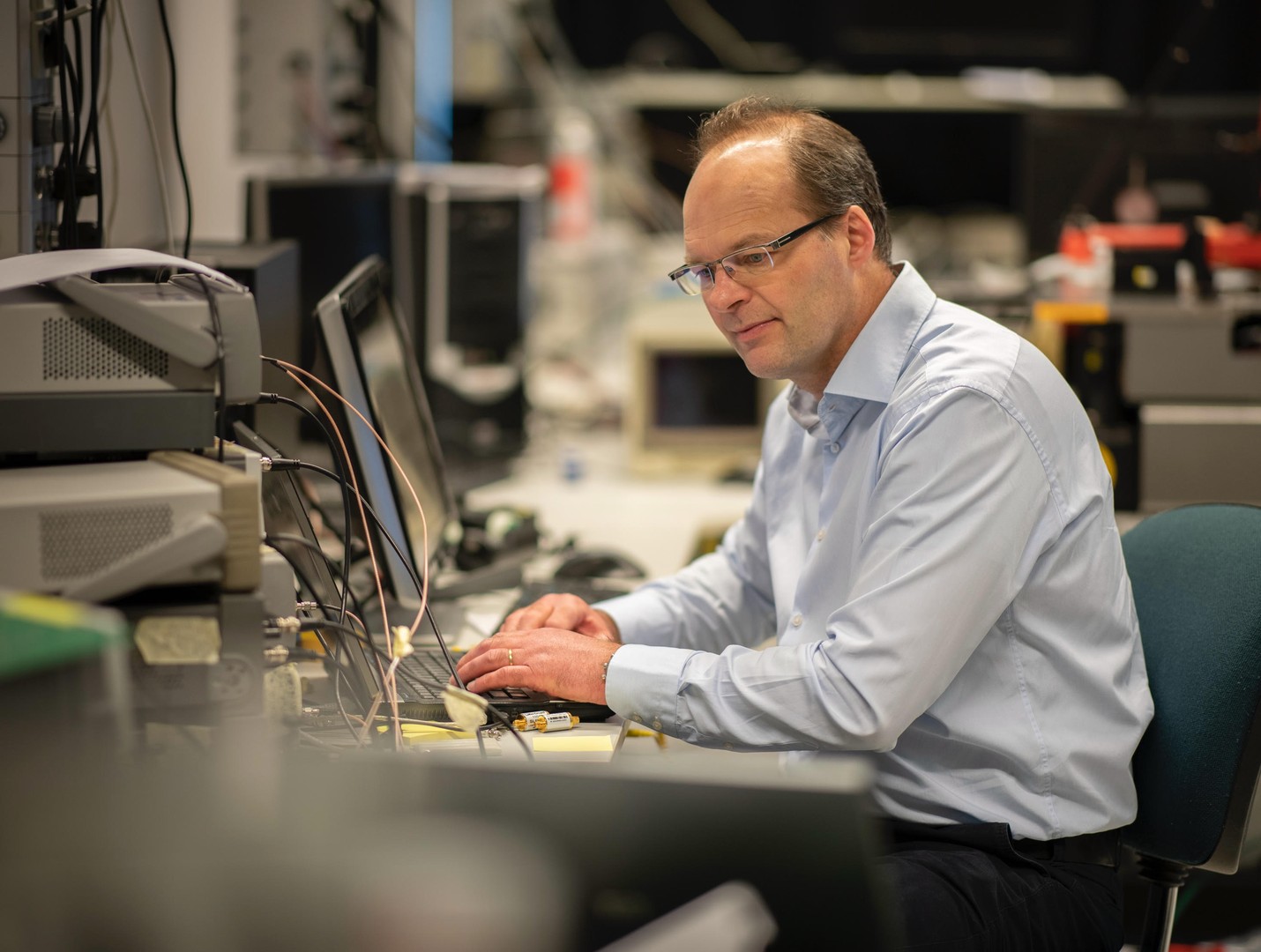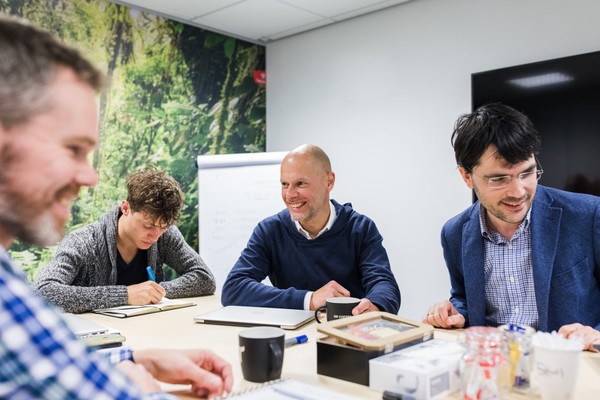Next Icons | Icon in the spotlight: Bram Nauta

Next Icons all hope to evolve into established names: true icons who push boundaries and change the world. One such icon is Bram Nauta, professor at the University of Twente and inventor of the Nauta circuit that has made innovations like WiFi and Bluetooth possible. We recently spoke to him about his career and the importance of innovation.
This story was previously published in the Next Icons Magazine. You can read the entire magazine here.
You don't become a renowned professor and inventor overnight. Where did it all start?
Bram: "As a child, I was always making things. I still vividly remember a friend's brother having an FM transmitter. I was about 11 at the time, and it fascinated me. I started looking at what parts were in it and subsequently used my pocket money to get the same ones and rebuild it. Initially, it didn't work, and I was disappointed - after all, it had cost me ten guilders. However, after turning the knobs a little more, the lady next door walked in: "I can hear Bram on TV!" So it did work after all. After some more twisting and tinkering, I could hear myself on the radio, and that was it. From then on, I would ride my bike to the dump and pick up old TVs, which I would then take apart in my attic at home. After a while, the whole neighborhood was coming to me to fix broken appliances."
Eventually, that brought you - via mavo (lower general secondary education) - to the University of Twente. How did you fare there?
Bram: “I flew through it. I was the fastest student in electrical engineering and got my engineering degree - which is now called a bachelor's and master's degree - with distinction. That didn't feel like hard work to me, so I started my PhD. That was a strange period, because my professor resigned, and no one knew what I was actually doing. Nor did I have a plan: I just wanted to get a PhD. I just did what I enjoyed doing. The result became the Nauta circuit: a circuit that was 20 times faster than what was possible at that time. But without the Internet and cell phones, there wasn't much use for such a circuit at the time. Later on, I learned that Nokia and Ericsson had used my circuit in all their phones and that the same circuit has made possible innovations like Bluetooth and WiFi. Something I could never have imagined when I was doing my PhD research - I was just following my passion. "Nothing beats going out and playing without a plan and people being delighted with the result."
It's safe to say that your research has made world-changing innovations possible. How important is innovation to you?
Bram: “Innovation is everywhere. Just look at my particular field: most devices run on chips, and this is only going to become more widely used. Is this necessary? No. Will you be able to take a step back later on? Again no. If I had said 20 years ago that we needed smartphones, you would have thought that that was nonsense too. So you can't imagine now what the world will be like in 20 years' time. Although what we have now is great, it is important not to return to how things were before. You see, we remain dependent on Taiwan for chips. Suppose China invades Taiwan - which is a real risk - we could suddenly run out of these same chips. And without chips, we're back in the 1950s. So it's essential for the continuation of European civilization that we start manufacturing our own chips here as soon as possible. And preferably some in Twente as well."
Twente as a Chip Tech hotspot, sounds good. With Bram Nauta as the ‘founding father’?
Bram: "I do see myself as a founding father in the field here in Twente. 30 years ago there was virtually nothing in this field, and now our department is among the world's best. After my PhD, I worked at Philips for a while. After 10 years, I decided to return to Twente to become a professor at the university. I then brought in a number of smart people from Philips and set up and expanded the department. This year, I celebrated my 25th anniversary, so I've had plenty of time to really build something up."
"In addition, I always find collaboration with companies to be essential, especially if they want to establish themselves in Twente - and stay here as they develop. This particular aspect is becoming increasingly successful, which is why we decided to set up the ChipTech Twente cluster. The initial idea was to put Chip Tech on the map; after all, people don't realize how much impact we make. Now, people are waking up and starting to sniff out opportunities. I think that's funny. Also because it seems to be giving me more influence within the university and the region. Although I don't have any political ambitions, people are now interested in hearing what I have to say. And that's quite nice: a ‘nerd’ being listened to. So I'm definitely not done building ChipTech Twente for the time being."
You've already had a global impact on one occasion thanks to your PhD research, and it now sounds like you've more in store. During that time, what is the most important lesson you've learned?
Bram: “The guiding principle in my life is that I've always followed my passion. I've always done what I loved: from building the FM radio to inventing the Nauta circuit ‘by accident’. And now, too, with the development of a strong ChipTech ecosystem. I don't do it for the status or the money, nor do I do what people expect me to do. Although I am, of course, extremely proud to have been awarded the Stevin Prize (the highest award in Dutch science) this year, this wasn't an end in itself. I just do what I enjoy doing. If you do that, it goes without saying that you will become very good at something. You don't necessarily have to have a plan, as long as you follow your passion. Then you will get there eventually."






